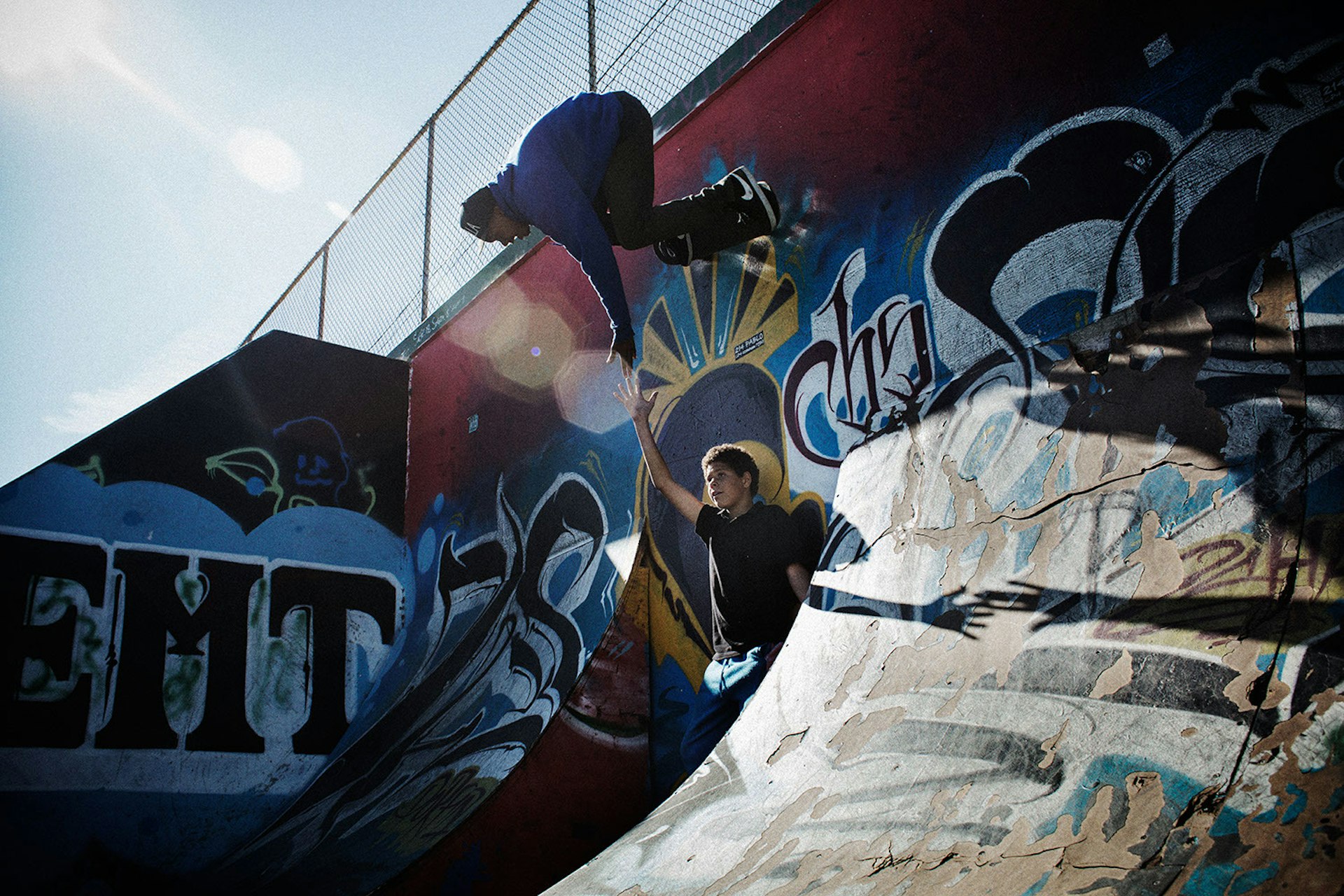- Text by Advertorial
If you think you know what rugby is all about, these four We Call It Rugby short films could change how you see the game.
You don’t have to be a beast of a human being like French number 8 Sébastien Chabal to enjoy rugby. Each of the personal stories below challenge stereotypes and show that anyone can pick up a rugby ball and be part of something.
Take Sammy who grew up angry and directionless in East London before finding himself in a housing association hostel, where he discovered rugby. The sport gave him the focus to pick himself up, rebuild his life and now he works as a coach, helping local kids avoid the same mistakes he made.
Or blonde identical twins India and Georgie. Their first passion was trampolining, but six months after picking up rugby they were representing England under-18s – not the story of your typical rugby player.
But then there is no “typical rugby player”. Here are four stories of people who found rugby and discovered a sense of belonging hard to find anywhere else.
Sammy & Jake
“I just tell them how it is, basically. I tell the truth,” explains Sammy. “Just let them know this is how it is. If you want to muck about this is where you’re going to end up. Want to do the right thing, this is where you can go and you can have a beautiful time in life.”
Sammy learned his lessons the hard way. Growing up without a father, he struggled to find out what he wanted from life – until he found rugby. Now he coaches local young people, like England hopeful Jake. After connecting over growing up without a role model to look up to, Sammy helped Jake see rugby as more than just a place to bury his aggression, but a passion.
“Rugby was my saviour, definitely,” Sammy explains. “God sent me this weird egg shaped ball that goes left or right and can bounce in any direction.”
The Twins
Trampolining might not be the most obvious step on a career to playing rugby professionally, but it clearly did the trick for identical twins India and Georgie. Six months after picking up rugby they were representing England at the European under-18s mixed sex, touch rugby tournament.
India and Georgie both want to pursue professional careers in rugby, something that’s now possible to earn a healthy salary from. The film catches up with them at home after receiving their A-level results and follows their build up to the Euro tournament.
The Spartans
You might not expect to run into a rugby club at Gay Pride, but for gay/all inclusive club Manchester Village Spartans, Manchester Pride Festival is the biggest event in their social calendar. While there aren’t many openly gay professional athletes – in football, rugby, or any other sport – the Spartans are one of a number of grassroots gay rugby clubs around the UK that are pushing to make the sport accessible to all.
The Spartans take a community approach to rugby, with a huge amount of their effort directed off the pitch. Dressed in full rugby kit, they head out in Manchester’s gay district around Canal Street to find new players and tell people about the work they do, such as volunteering as ‘Village Angels’, looking after people as they make their way home from nights out.
LJ & Ellis
When LJ was just three years old, social workers in Bristol told his mum “he’ll probably end up in prison” – at a time when the media was full of negative stories about the prospects for mixed-race Caribbean boys. After being diagnosed with mild autism, he was removed from school aged nine when teachers couldn’t cope with his behaviour and placed in a residential school.
Like LJ, under-20s England prop Ellis Genge grew up in one of the toughest areas of Bristol as an “angry teenager”, getting in trouble with police for fighting and stealing.
After discovering rugby, both Ellis and LJ found a focus. Ellis now mentors kids from difficult backgrounds like his own and after winning a scholarship to the prestigious Hartbury College, LJ has become his residential school’s first pupil to re-enter mainstream education.
Find your club at findrugby.com
